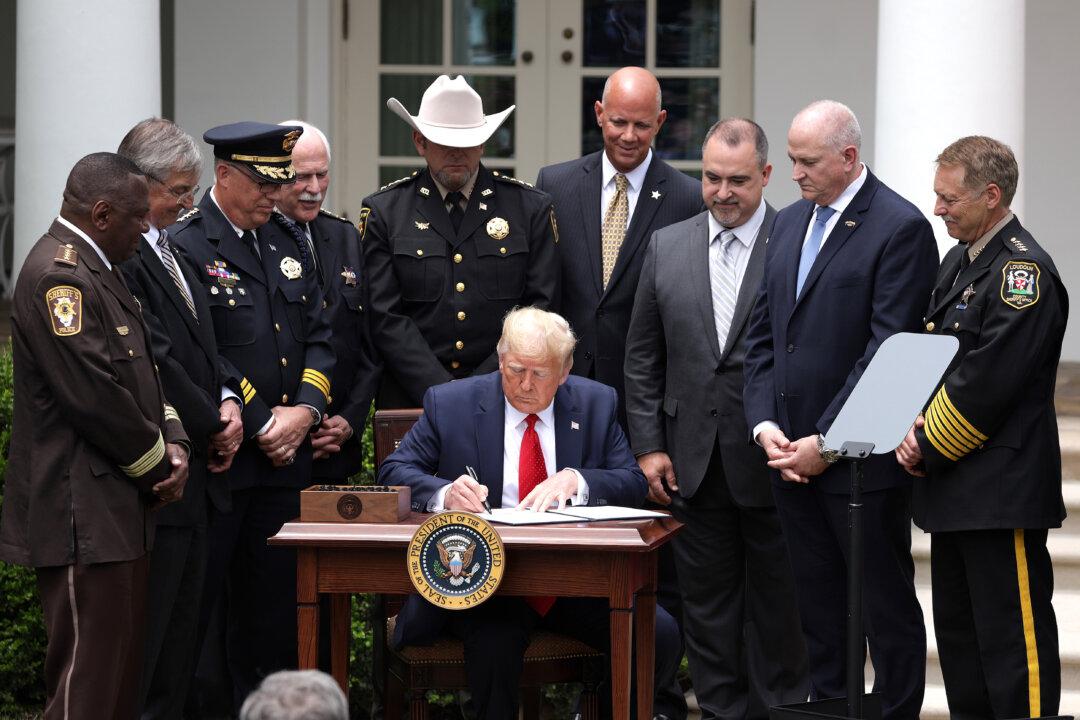President Donald Trump signed an executive order that will only award certain federal grants to police agencies that reform their use-of-force rules and send data on officer use-of-force misconduct to a national database.
It also directs federal dollars to train police in how to respond to incidents involving mental health, overdoses, and homelessness, and to develop standards for sending social workers along with officers to such incidents.





